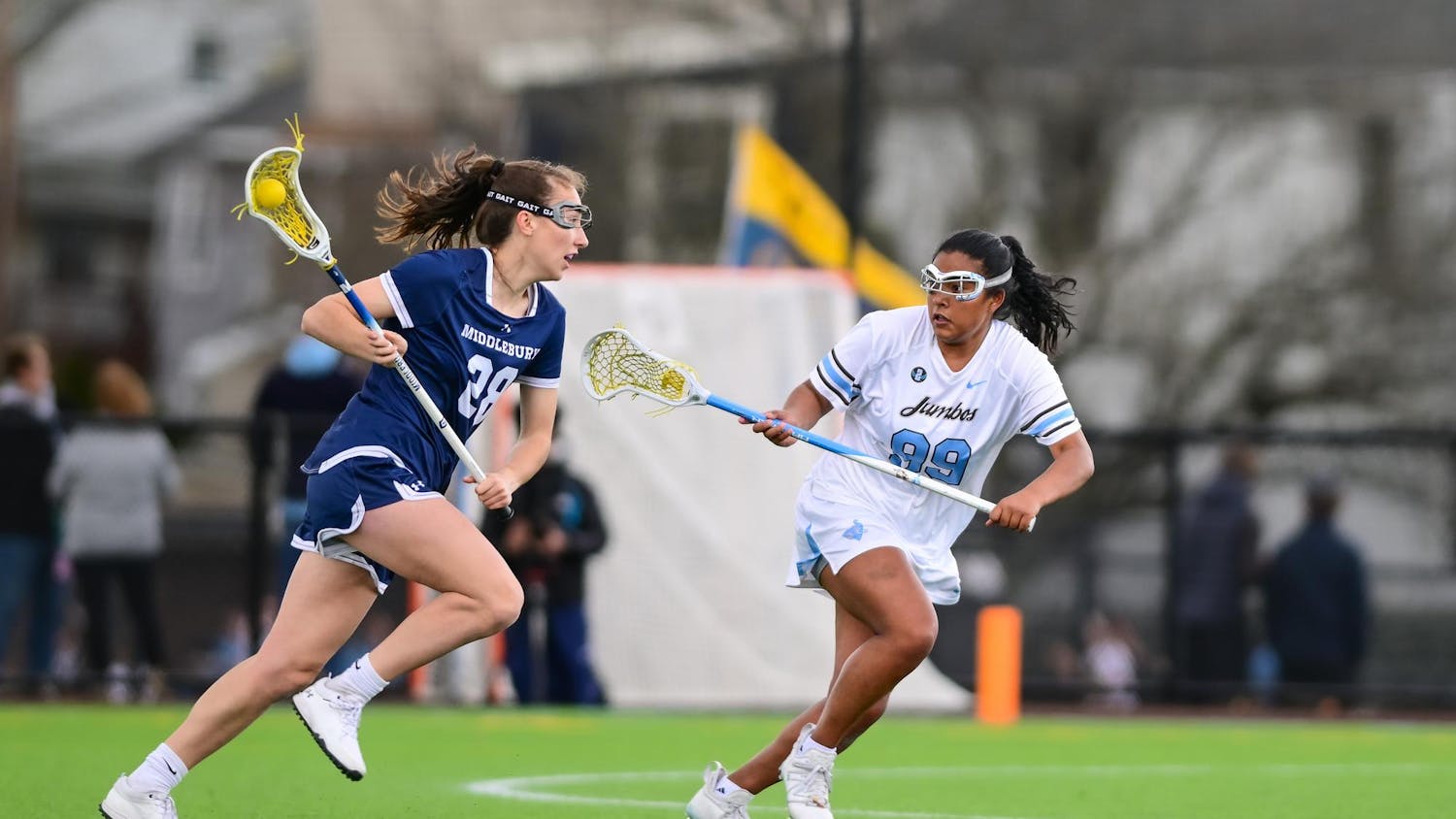This weekend, thousands of fans huddled around the three-mile long section of the Charles River in Cambridge to watch hundreds of boats take to the 'dirty water.' Turning their attention away from the whipping winds and the surprisingly stiff October cold that harassed the rowers all weekend long, the droves of fans were treated to exciting competition on the water as well as plenty of body-warming food and drink along the edges of the river.
The Tufts men's crew, hoping to finish its fall slate with a solid performance on the Charles, posted mixed but encouraging results.
On Sunday, the eight-man boat notched a disappointing time of 17:38, over two minutes and 30 seconds behind first-place Williams' mark of 15:11. While the boat finished 37th out of 38 crews, the team still felt it rowed a solid overall race despite tough weather conditions and a small lapse in the second half of the race.
"We had a really good race, especially the first half of it," senior co-captain Nahv Etedali said. "We felt really good, and we definitely came off better than when we went on the water, which is something we always try to do. We had a great Head of the Charles."
"We looked like we had some patience on the recovery and we started to get a little rushed," coach Jay Britt said. "But I think that in the first half of the race, they were pretty much in control, and they were doing what they wanted to do."
Sophomore Alix Boulud, a novice coxswain who had not competed in a race before the weekend, steered a solid course according to her teammates, navigating through the tough weather and fending off opponents' attempts to pass the Jumbos.
"The coxswain certainly steered a nice course today, coming into the bridges they had to maneuver and jockey for some positions with the other crews," Britt said. "To avoid any clashes with the oars and to come through the bridges is a nice testimony for the coxswain."
"She took great turns and had a great course," Etedali said. "Considering the rules of the race and the rules on passing and yielding, she really took the turns as best she could and gave us as much of a time advantage based on the steering as she could have, so she did a great job. Our coach actually gave her the bow marker of the boat because she did such a great job, which he usually doesn't do."
Boulud was more modest in assessing her own performance.
"They were working really well together," she said. "Especially in the first half of the race, the set was great. During the second half, we obviously got a little bit tired, but then they really picked it up during the big turn at the end. We did our best to hold off some crews, and although we did get passed a couple of times, we held them off for a very long time, and we were definitely proud of that."
The four-man boat, which raced on Saturday, posted a solid finishing time of 17:50, good for 15th place out of 31 crews. The University of Michigan four boat took first place in the event with a remarkable time of 16:26.
While the middle of the pack wasn't where the Jumbos had hoped to place, the team knows that its performance was still a big step toward a successful spring season.
"I feel pretty psyched about it -- it was a good race," senior co-captain Robbie Bayless said. "We felt really strong going through it. Our rate may have been a little low, but we felt really good.
"You definitely get amped up to go. When you're starting off, you don't even feel anything for the first mile or so before it hits you, and then you get a second wind. We took off well yesterday and stayed away from the logjam of crews behind us. [Sophomore] Josh Aschheim, our coxswain, steered a killer course, so that really helped us out and put us in position to finish really well," Bayless continued.
Both boats, especially the eight, faced the obstacles of tough winds and uneven wakes produced by the other boats. Nonetheless, the crew did its best to adjust and looked at the regatta as a crucial learning experience.
"The wind does affect the boat," Britt said. "And that's another nice testimony to the coxswains because the wind can really blow the crew around. It can disrupt the set of the boat because it can hit the side of the boat and toss it to one side or the other."
With the official fall schedule now complete and only a few weeks of outdoor practice remaining, the Jumbos look to continue to improve on their technique before moving to the ergs indoors.
"We have a couple more weeks until we're actually off the water, so we're going to be looking to continue to build on our technique," Etedali said. "That way, when we're done with winter training, where we're on the ergs all the time, we'll have made better use of the time. We spend hours and hours on the ergs, so if we do that with better technique to mimic rowing on the water, it's better for us in the spring. Hopefully we can build on that in the next couple of weeks and really build up the stamina over winter training."
As for the pulse of the Jumbos at this point in the season, the team is proud of the strides it has made.
"Our goal for each of the fall races was to come off of the water better than when we went on it, and I think we've accomplished that," Britt said. "I know we've accomplished that. So it's a nice foundation for us to take into the winter and to have the kids build on that come spring."





